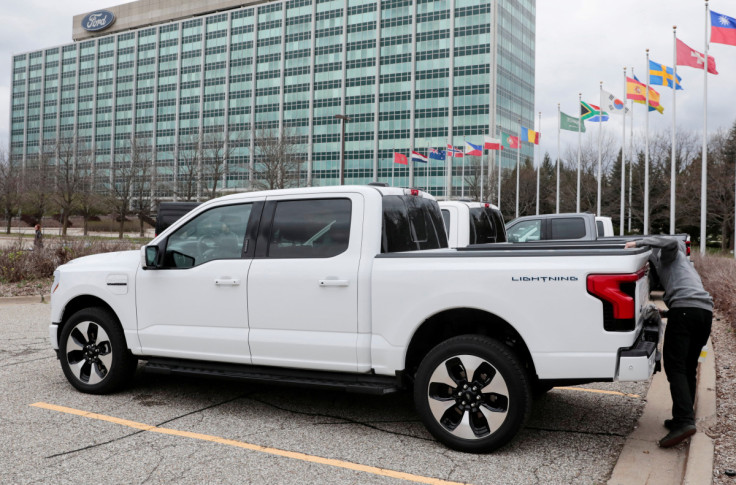Ford Says New Rules Will Cut EV Tax Credit In Half For Most Models

Ford Motor Co said on Wednesday that four of its six electric and plug-in electric hybrid models will see tax credits halved to $3,750 on April 18 after new U.S. Treasury rules take effect.
Only the F-150 Lightning pickup truck and Lincoln Aviator Grand Touring will still be eligible for a $7,500 credit. The other models currently getting credits - Ford Mustang Mach-E, Ford E-Transit, Ford Escape Plug-In Hybrid and Lincoln Corsair Grand Touring - will see credits drop to $3,750.
The stricter EV battery sourcing U.S. Treasury guidance issued on Friday triggers new requirements for critical minerals and battery components.
Ford said in March it expects its electric-vehicle business unit to lose $3 billion this year, but will remain on track for a pretax margin of 8% by late 2026.
Sales of Ford's electric vehicles jumped 41% in the first quarter, data on Tuesday showed.
General Motors said last week it expects some electric vehicles (EVs) will qualify for the $7,500 tax credit after the new guidance takes effect including the Cadillac Lyriq and the forthcoming Chevrolet Equinox EV SUV and Blazer EV SUV.
GM currently receives that amount for the Chevrolet Bolt and the forthcoming Chevrolet Silverado EV would have been eligible. GM said it expects Bolt vehicles to still qualify for some level of credit.
Tesla said last week the Model 3 rear-wheel drive credit will be reduced as a result of the guidance.
All U.S. EV consumer tax credits require vehicles to be assembled in North America and have income and retail price caps. Electric vehicles leased by consumers can qualify for up to $7,500 in commercial clean vehicle tax credits without any of the same restrictions. Those credits go to the company that owns the vehicle rather than the consumer leasing it.
© Copyright Thomson Reuters {{Year}}. All rights reserved.





















